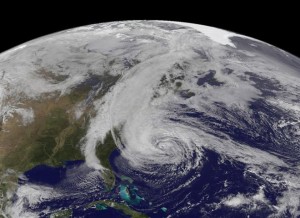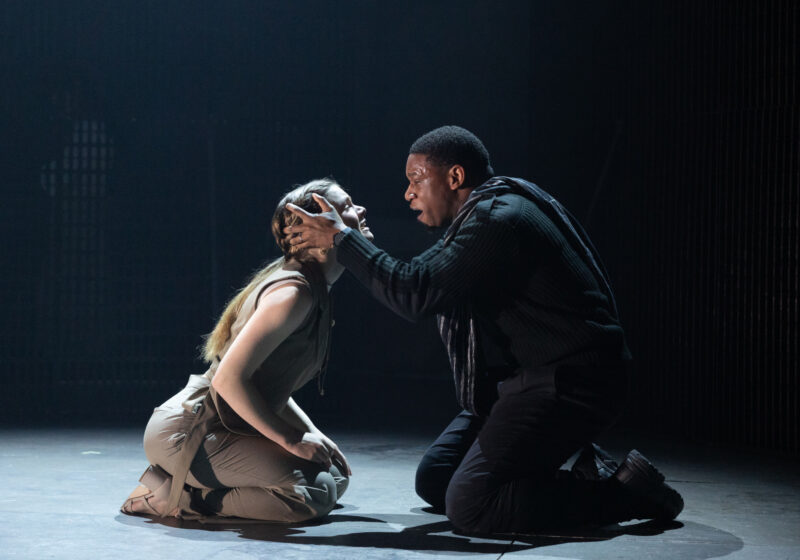Hurricane Sandy left a path of destruction throughout the northeast on Monday, Oct. 29. We’ve all seen the pictures. What we don’t always see is the ripple effect this destruction brings.
Luckily, Rochester wasn’t hit as hard as expected, but that doesn’t mean that students and faculty weren’t affected. In fact, it seems that many people on campus were somehow impacted by the storm, whether it was a slight inconvenience with travel, personal property damage back home or, in some cases, the chance to vote.
The smallest woes involved some travel delays.
“I had a little trouble getting back to school from Syracuse,” senior Sara Rothenberg said. “I had a train scheduled for Monday afternoon, but got a call Sunday night saying my Amtrak service had been canceled and trains had stopped until further notice.”
Rothenberg was able to catch a crowded bus back to Rochester on Monday morning before the storm hit, but witnessed some of the real world pre-storm panic.
“Syracuse was very worried about the storm,” she said. “In what I would call mass hysteria, the grocery store was a zoo and completely sold out of bread, water and tuna.”
Assistant Anthropology Professor Eleana Kim was also delayed in San Diego when her flight was canceled.
“I got home fine, just a day late,” she said.
In a message to the University community on Wednesday, Oct. 31, UR President Joel Seligman urged “faculty to be supportive of students and others who may seek to return home to be with their families during the difficult aftermath of Sandy.” Senior Leah Conant was thankful for this message, even though she was home for other reasons and merely delayed by the storm.
“I had to go home for a funeral and was supposed to return Monday, Oct. 29, but my connecting flight was canceled and the next flight I could get wasn’t until Thursday,” she explained.
“My professors were understanding and flexible. I didn’t have any of my homework though because I expected to be back in Rochester, so it was tough trying to get my assignments done,” Conant added.
Besides missing school, many students from the areas hit hardest by the storm received first hand accounts of the hurricane from their families.
“School [in Long Island] has been closed for a week and a half and most people still don’t have electricity,” sophomore Mike Saulle said. “Many houses were destroyed — mine wasn’t, thank God — and people have lots of property damage.”
Junior Willie Roberson’s family had a similar experience in his hometown of Monmouth Junction, N.J. which is about 45 minutes from the shore.
“After the storm passed through, they informed me of a very scary moment when two very large trees collapsed in our backyard, smashing our fence, grill [and] patio table and ripped off portions of the siding of the house,” he said.
The biggest issues were fallen trees, flooding and a lack of power — and in some cases, uncertainty about insurance coverage.
“After seeing the damage, my parents applied to see if insurance will cover the damage but the status is uncertain,” Roberson said. “A lot of material things were destroyed in my town as a result of the storm, but the most important thing is that my parents are safe.”
It seems that the biggest issue for students is property damage, and some cases that destruction was extreme.
“My family had a beach house on the Jersey shore and it’s not there anymore,” sophomore Ayal Gabbay said.
Saulle also mentioned how the beach he used to go to was wiped out by the storm.
“[The beach at Robert Moses State Park] doesn’t exist anymore,” he said. “That’s crazy.”
Another major issue was damaged gas lines that caused many house fires. The infrastructures of many towns have been compromised as well.
“Right now it’s really hard to get gas and there are three-hour long lines at any gas station that is still open,” Saulle said. “Both my parents haven’t been working because the island is pretty much shut down. People are saying that power probably won’t come back by Thanksgiving.”
Surprisingly, the storm also had an effect on UR voters. On the night of Nov. 5, about 13 hours before the polls were scheduled to open, Governor Andrew Cuomo signed an executive order that stated that any voter registered in a federally declared disaster county could vote with an affidavit ballot at any poll site in New York State, regardless of where they are registered.
This gave citizens displaced by the hurricane the same opportunity to vote as anyone else and was effective for students studying in disaster regions who were no longer able to commute home to vote.
This also meant that any UR student registered in one of the disaster areas could vote at any local polling place, which was great news for those who hadn’t applied for absentee ballots.
Sophomore Christina Smiros was one such student and was able to vote at the Saunders Research Building because of Cuomo’s order.
“The disappointment of not being able to vote in my first eligible national election and the aftermath of Hurricane Sandy were very separate and important issues on my mind,” Smiros explained. “When Cuomo announced [that], I felt a [little better about] the storm that had destroyed much of what I consider home.”
In the midst of the disaster, Smiros found this to be an “excellent moment for democracy.”
“Although relief and full recovery from the storm will take months, I am proud to identify with a population so dedicated to rebuilding and civic duty that such adjustments can be made,” she said.
Hurricane Sandy destroyed property, displaced voters and created dire circumstances for many people, including UR students and their friends and families. However, not everyone was so unlucky. While the storm raged here, Conant was stuck home for four days, but was safe and sound with her family the whole time.
“The weather in St. Louis was gorgeous,” she said. “No rain, just perfect fall days.”
Esce is a member of
the class of 2015.






